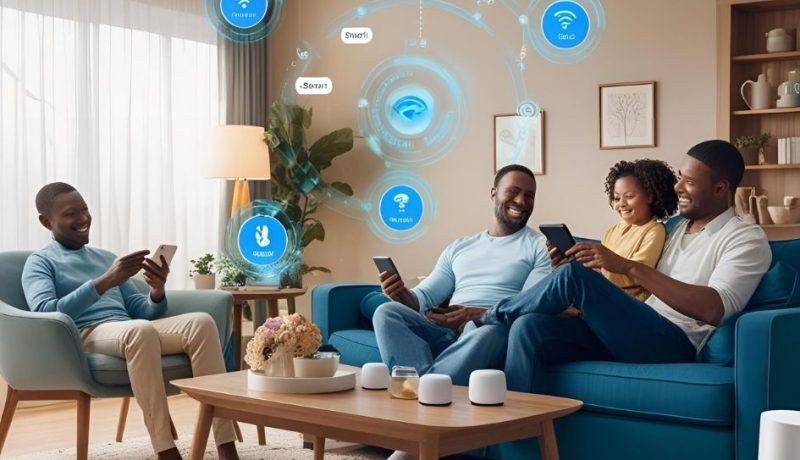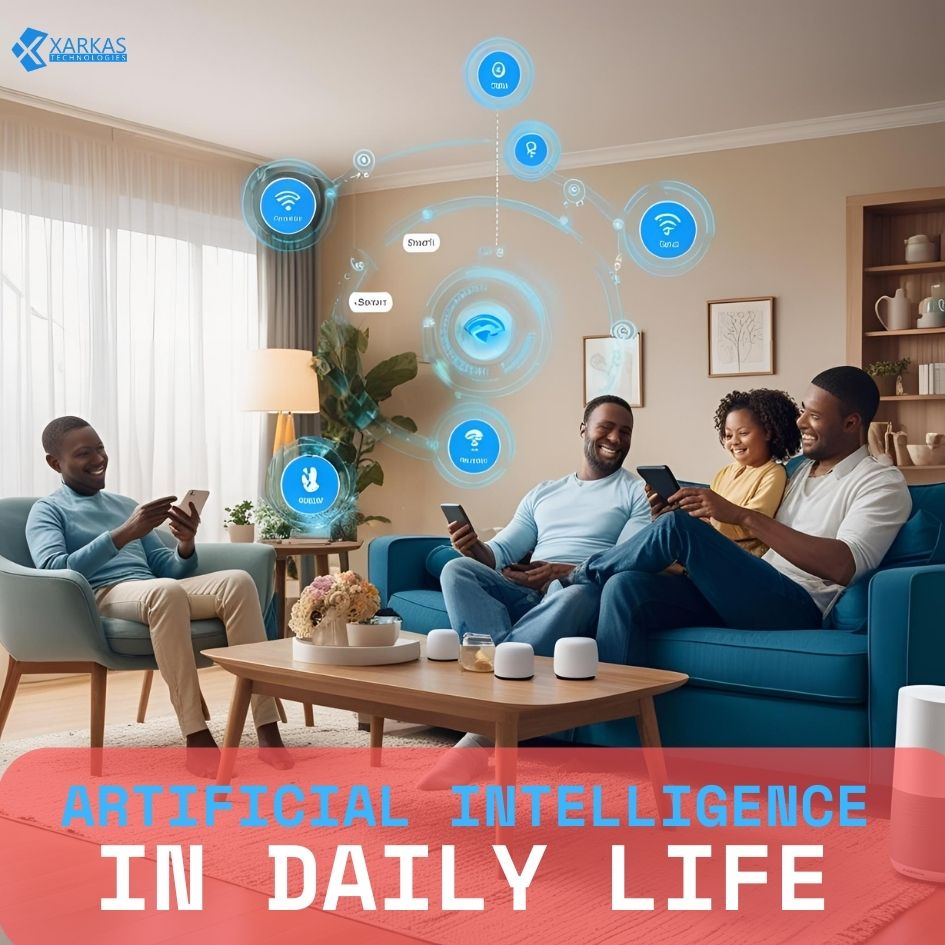
10 Powerful Uses of Artificial Intelligence in Daily Life
Artificial Intelligence (AI) is no longer confined to research labs or futuristic films. It has embedded itself deeply into our everyday routines, often operating quietly behind the scenes. From smart assistants to health tech, AI has revolutionized how we live, work, and interact. Below, we explore 10 transformative uses of artificial intelligence in daily life, each showcasing how this powerful technology enhances convenience, efficiency, and productivity.
Table Of Content
- 1. Smart Assistants: Your Everyday Digital Helpers
- 2. Personalized Recommendations: AI Behind What You Watch and Buy
- 3. Smart Home Devices: Automating Everyday Living
- 4. Navigation and Traffic Management: Smarter Travel with AI
- 5. AI in Smartphones: Making Phones Smarter
- 6. Healthcare and Fitness Tracking: AI for Better Well-being
- 7. Social Media: AI Tailoring Your Feed
- 8. E-Commerce and Customer Service: Smarter Shopping Experiences
- 9. Financial Services: AI for Money Management
- 10. Education and E-Learning: Personalized Learning with AI

1. Smart Assistants: Your Everyday Digital Helpers
Whether it’s Amazon’s Alexa, Apple’s Siri, or Google Assistant, AI-powered smart assistants have become household staples. These tools leverage natural language processing (NLP) to understand and respond to user commands.
From setting alarms, playing music, answering questions, controlling smart home devices, to scheduling meetings, these AI assistants simplify daily tasks, enabling hands-free operation and improving multitasking efficiency.
2. Personalized Recommendations: AI Behind What You Watch and Buy
Every time you watch a show on Netflix or buy a product on Amazon, AI algorithms are at work. These platforms use machine learning to analyze your preferences, past behavior, and interests to serve up relevant suggestions.
Whether it’s YouTube auto-playing the next video or Spotify curating your Discover Weekly playlist, AI personalizes your content consumption, increasing user satisfaction and retention.
3. Smart Home Devices: Automating Everyday Living
Smart thermostats like Nest, intelligent lights, robotic vacuum cleaners like Roomba, and connected refrigerators are all AI-enabled devices. They learn user habits and environmental conditions, adapting to provide optimal comfort and efficiency.
For example, AI-controlled thermostats predict your preferred temperature based on time and presence, helping you save energy and reduce utility costs. These devices enhance safety, efficiency, and convenience at home.
4. Navigation and Traffic Management: Smarter Travel with AI
Gone are the days of printed maps and guesswork in traffic. Navigation apps like Google Maps and Waze use AI to analyze traffic patterns, roadblocks, and user reports in real time.
AI systems suggest the fastest routes, help estimate arrival times, and even reroute drivers to avoid congestion or accidents. In public transportation, AI is also used for scheduling and managing traffic flows, especially in large urban areas.
5. AI in Smartphones: Making Phones Smarter
Modern smartphones are powered by AI more than ever before. From face recognition unlocks, voice assistants, to camera enhancements, AI boosts both functionality and user experience.
AI-driven apps improve photo quality automatically, organize your gallery, filter spam calls, and even detect fraud. Features like real-time language translation and predictive texting rely heavily on deep learning and natural language processing.
6. Healthcare and Fitness Tracking: AI for Better Well-being
AI plays a crucial role in health monitoring and diagnostics. Wearable devices like Fitbit, Apple Watch, and Garmin use AI algorithms to track heart rate, sleep patterns, physical activity, and more.
In hospitals and clinics, AI supports diagnostic tools, medical imaging analysis, and predictive analytics, enabling early detection of diseases and personalized treatment plans. Virtual nurses and chatbots also assist patients in managing medication and appointments.
7. Social Media: AI Tailoring Your Feed
AI algorithms curate and personalize social media feeds on platforms like Facebook, Instagram, Twitter, and TikTok. They analyze your engagement history, interactions, likes, and follows to display content that aligns with your interests.
Additionally, AI is behind features like facial recognition for photo tagging, spam detection, and automatic content moderation, ensuring a safer and more engaging user experience.
8. E-Commerce and Customer Service: Smarter Shopping Experiences
AI has transformed online shopping with chatbots, virtual shopping assistants, and dynamic pricing engines. These technologies enhance customer service, offer real-time support, and help users navigate complex product catalogs.
Retailers use predictive analytics to forecast inventory, optimize supply chains, and personalize marketing strategies. AI-powered customer service bots are available 24/7, reducing wait times and improving satisfaction.
9. Financial Services: AI for Money Management
Banking and finance have seen a huge shift with AI integration. AI is used for fraud detection, credit scoring, automated investing (robo-advisors), and expense tracking.
Apps like Mint or Cleo use AI to categorize spending, suggest savings goals, and alert users about anomalies. AI-based tools also analyze market trends, enabling smarter investment decisions and reducing financial risks.
10. Education and E-Learning: Personalized Learning with AI
AI is redefining education through smart platforms that adapt learning content based on individual student performance. Tools like Duolingo, Coursera, and Khan Academy use AI to customize exercises, provide instant feedback, and recommend tailored content.
AI-powered virtual tutors assist in homework, while administrative bots help in automating grading and communication. This approach boosts engagement and learning outcomes, making education more accessible and efficient.
Conclusion: Embracing AI for a Smarter Life
Artificial Intelligence has firmly embedded itself into the fabric of daily life. From smart homes and healthcare to education and finance, its applications continue to grow. Embracing AI means unlocking greater productivity, personalization, and efficiency across all aspects of our routines.







No Comment! Be the first one.